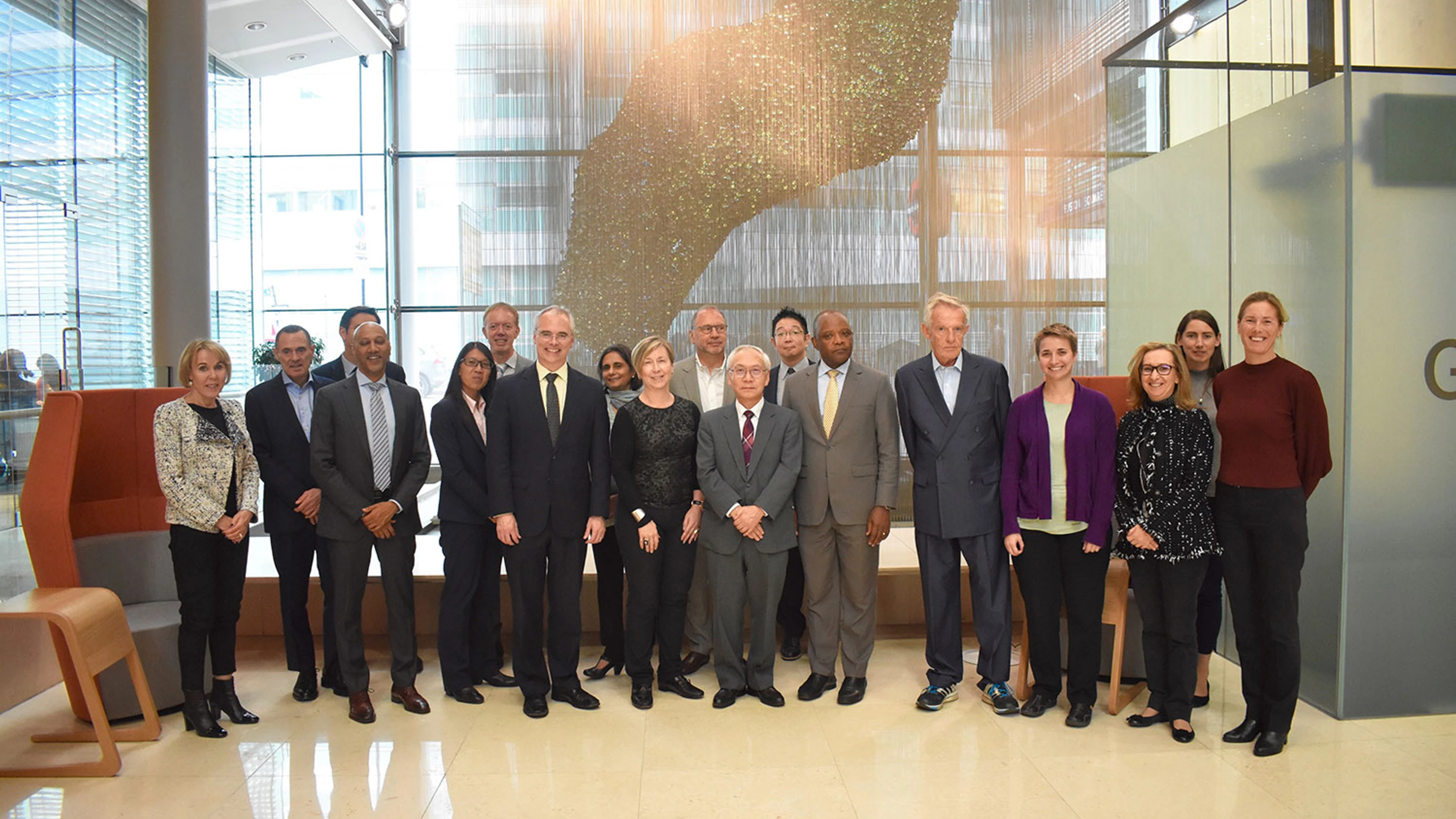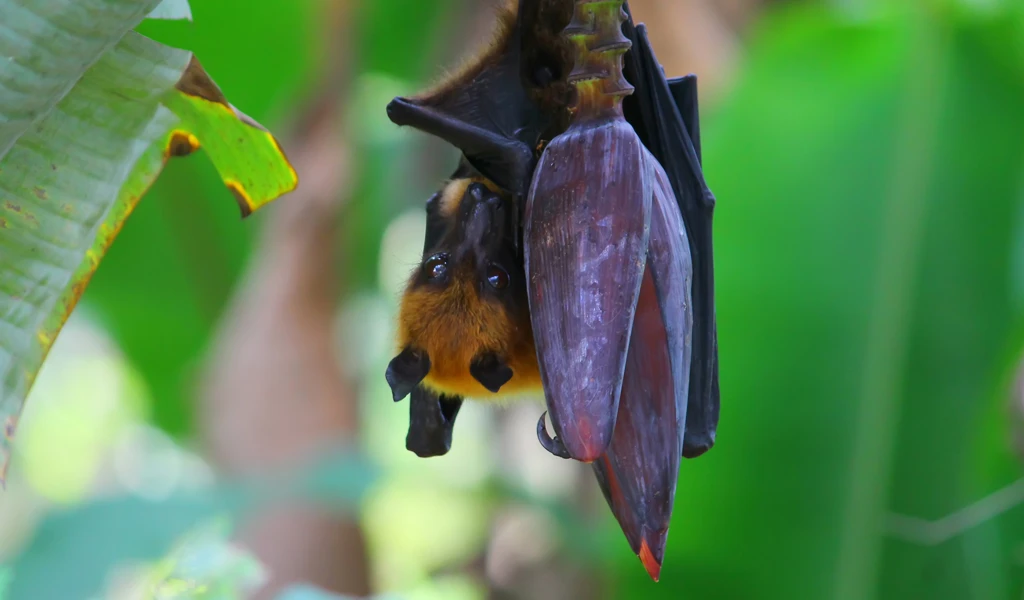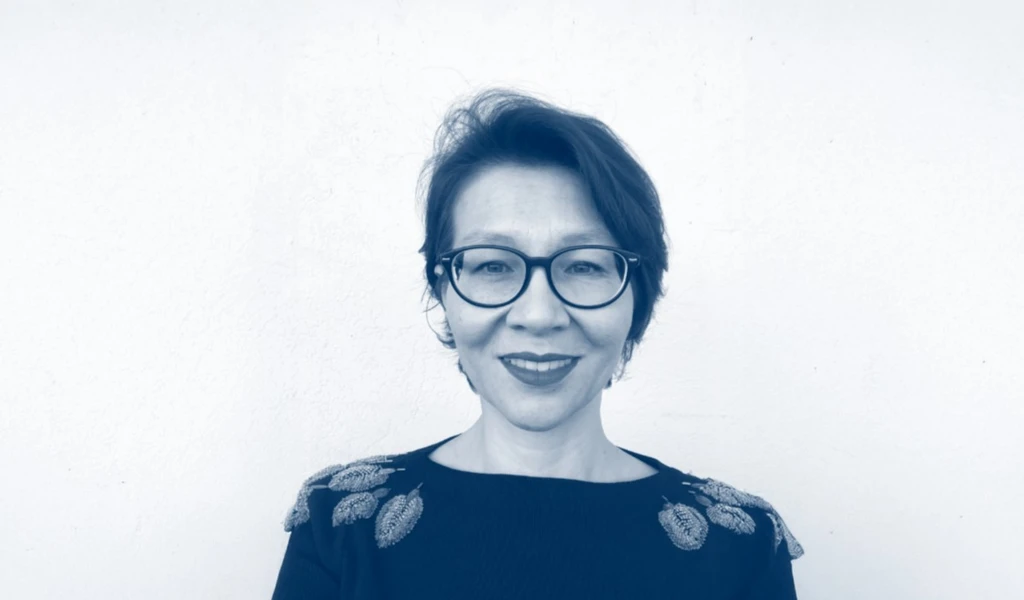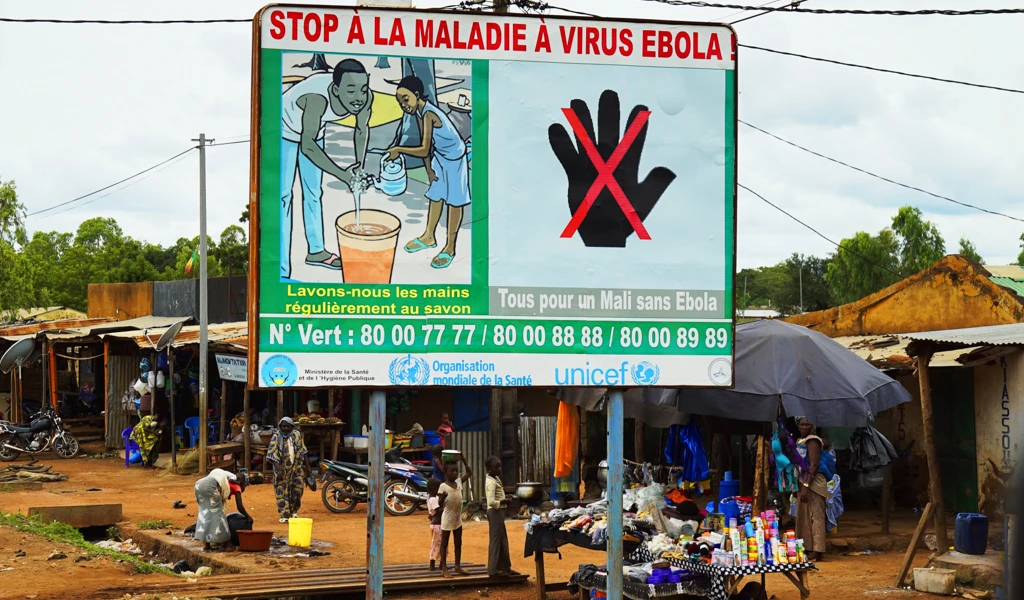Media release, 24 January 2018, London - Coalition for Epidemic Preparedness Innovations
Today, CEPI, the coalition launched one year ago to finance and coordinate the development of new vaccines to prevent and contain epidemics, announces the establishment of its new permanent Board.
The Board includes global leaders who have made extraordinary contributions to protecting and improving health, and who bring a wealth of expertise to CEPI as it moves into the next phase of its development.
CEPI's new Board will have twelve members. Eight seats will be held by independent members, while four seats have been reserved for investors. The independent members are:
- Dr Awa Coll-Seck, Minister of State and Former Minister of Health and social welfare of the Republic of Senegal
- Jane Halton, (Chair), former Secretary of the Australian Department of Finance
- Professor Cherry Gagandeep Kang, Christian Medical College Vellore
- Dr Joanne Liu, International President, MSF
- Dr John Nkengasong, Director of the Africa Centers for Disease Control and Prevention
- Professor Peter Piot, Director of the London School of Hygiene & Tropical Medicine
- Dr David Reddy, CEO, Medicines for Malaria Venture
- Dr Rajeev Venkayya, President, Global Vaccine Business Unit, Takeda Pharmaceutical Company Limited
The four investor seats will be named by CEPI's newly formed Investors Council. It is anticipated that three seats will be held by sovereign investors and one by a philanthropic investor.
I'm delighted to welcome these eminent experts to our Board. This is a seminal moment in CEPI's development as we invest in developing the vaccines and capabilities that the world currently lacks to prepare against future epidemics. CEPI is fortunate to have a Board of this calibre to advise us as we deliver our mission to make the world safer through new vaccines.
About CEPI
CEPI is an innovative partnership between public, private, philanthropic and civil organizations. It was founded in 2017 by the governments of India and Norway, the Bill & Melinda Gates Foundation, Wellcome and the World Economic Forum. To date, CEPI has also received investment from the governments of Germany, Japan, Australia, Belgium, and Canada. It has reached $620m of its target $1bn funding.
The European Commission has announced a contribution in kind of €250M that will support relevant projects through EC mechanisms.
Since its launch in January 2017, CEPI has announced two Calls for Proposals. The first was for candidate vaccines against Mers-CoV, Nipah and Lassa viruses. The second was for the development of platforms that can be used for rapid vaccine development against unknown pathogens.
Notes to Editors
CEPI's new permanent Board will consist of 12 voting members:
- Eight independent members appointed based on their individual expertise and knowledge
- There will be four investor seats which will be named by CEPI's newly formed Investors Council. It is anticipated that three seats will be held by sovereign investors and one by a philanthropic investor.
In addition there will be five non-voting members or ‘observers' who represent CEPI's wider community: (CEPI CEO, Chair of CEPI's Scientific Advisory Committee, Chair of CEPI's Joint Coordination Group, World Bank as a representative of the principal financial institution holding CEPI's funds and a representative from the World Health Organization).
The Permanent Board will meet for the first time on March 8 and 9 in Addis Ababa.
The interim Board remains in place until that point.
Biographies
Awa Coll-Seck, Former Minister of Health of the Republic of Senegal
Senegal
Awa Marie Coll-Seck has served as Minister of Health of the Republic of Senegal from 2012 to 2017. She was Executive Director of the Roll Back Malaria Partnership (RMB) from 2004-2011 and served as Director of the UNAIDS Department of policy, strategy and research and finally Country and Regional Support from 1996-2001. Specialist of infectious diseases and bacteriology-virology, she was head of the Department of infectious diseases at University Cheickh Anta Diop of Dakar-Senegal, before starting her international career.
She was Minister of Health and Prevention of Senegal from 2001 to 2003.
Dr Coll-Seck is on the Board of Directors of the Global Fund, Roll Back Malaria, on the Scientific Council of University Cheick Zaid (Marocco) and the High Level Steering Group for Every woman, every Child.
She has been awarded numerous honours, including the Knight of the Order of Merit of Senegal, Burkina Faso, France and of The Gambia; and Palmes académiques of and Légion d'honneur of France. She has been awarded « Best Minister of the world » in Dubai in 2017. She is an honorary member of the Academy of Sciences and Technologies of Senegal and the French Academy of pharmacy. She is the author of more than 150 scientific publications.
In January 2016, Coll-Seck was appointed by United Nations Secretary-General Ban Ki-moon to the High-level Advisory Group for Every Woman Every Child. Also since January 2016, she has been serving on the Guttmacher-Lancet Commission on Sexual and Reproductive Health and Rights (SRHR). Dr. Coll-Seck earned her medical degrees from the University of Dakar in 1978.
Jane Halton, former Secretary of the Australian Department of Finance
Australia
Jane Halton is a former Secretary of the Australian Department of Finance, responsible for supporting the delivery of the Australian Government Budget, the ongoing management of the Australian Government's non-defense domestic property portfolio, key assets and asset sales, plus the financial and performance framework for Australian Government agencies. She has extensive experience in finance, insurance, risk management, information technology, human resources, health and aging, sport, and public policy, as well as significant international experience.
In a 33-year career within the public service, including nearly 15 years as Secretary, Ms. Halton's previous roles include Secretary of the Australian Department of Health, Secretary for the Department of Health and Ageing, and Executive Co-ordinator (Deputy Secretary) of the Department of the Prime Minister and Cabinet.
Ms. Halton is a member of the Boards of the Australia and New Zealand Banking Group (ANZ Bank), Clayton Utz, and the Australian Strategic Policy Institute. She is also a member of the Interim Board Coalition for Epidemic Preparedness Innovations.
Previously, Ms. Halton has held numerous international appointments including the Executive Board of the World Health Organization (2004—2007), President of the World Health Assembly (2007), Chair of the Executive Board of WHO, and Chair of the OECD Health Committee (2007—2012).
Ms. Halton holds the positions of Adjunct Professor at the University of Sydney, and Adjunct Professor at the University of Canberra. She also holds a Doctorate of Letters Honoris Causa from the University of New South Wales.
She was awarded the Public Service Medal in 2002, the Centenary Medal in 2003, and the Geneva Health Prize in 2013. In 2016, Ms. Halton became one of a small number of international members elected to the National Academy of Medicine in the United States.
Cherry Kang, Professor, Christian Medical College Vellore
India
Professor in the Department of Gastrointestinal Sciences at the Christian Medical College (CMC) in Vellore, India. She is vice principal of research, deputy chairperson of the Institutional Review Board and head of the Wellcome Trust Research Laboratory at CMC.
Dr. Kang's research focuses on enteric infections in children. She recently studied hospital and community-based surveillance utilizing new molecular procedures to investigate immune responses in children with viral and parasitic enteric infections. She has worked to determine modes of transmission and assess immune responses to design effective interventions for addressing enteric infections in children. She has also served as an investigator on national and internationally funded diarrheal disease research grants.
In 2006, Dr. Kang received the Indian National Award for Women Bioscientists for her significant contributions to the understanding of the molecular epidemiology of rotavirus in children.
In 1999, she served as a visiting fellow at the Baylor College of Medicine in Houston, Texas, and in 1998, she was a visiting fellow at the Health Protection Agency in London, England. Dr. Kang worked as a lecturer and a reader in the Department of Gastrointestinal Sciences at CMC from 1991 to 1998.
Dr. Kang has published numerous papers in national and international journals. She is the recipient of India's National Talent Scholarship and has been honored with a core research professorship and Lourdu Yedanapalli Research Award by CMC.
Dr. Kang received international, honorary appointments as an associate faculty member at the Johns Hopkins University Bloomberg School of Public Health in Baltimore, Maryland, and adjunct professor at Tufts University School of Medicine in Boston, Massachusetts.
She received her MD in clinical microbiology in 1991 and her PhD in microbiology in 1998 from CMC in India.
Joanne Liu, International President, MSF
Canada
Dr. Joanne Liu, is a Canadian paediatric emergency physician with a lifelong interest in medical humanitarianism.
She currently serves as the international president of Médecins Sans Frontières (MSF), with whom she has undertaken more than 20 missions since 1996.
Dr. Liu is resolutely focused on keeping the medical needs of people and their communities at the centre of all crisis response decisions.
John Nkengasong, Director of the Africa Centers for Disease Control and Prevention
Cameroon
Dr. Nkengasong is Director of the Africa Centers for Disease Control and Prevention. Until recently, he served as the deputy principal director (acting) of the Center for Global Health, United States Centers for Disease Control and Prevention (U.S. CDC).
He received a Masters in Tropical Biomedical Science at the Institute of Tropical Medicine in Antwerp, Belgium, and another Masters Degree in Medical and Pharmaceutical Sciences at the University of Brussels School of Medicine and a Doctorate in Medical Sciences (Virology) from the University of Brussels, Belgium.
Between 1993-95 he was Chief of the Virology and the WHO Collaborating Center on HIV diagnostics, at the Department of Microbiology, Institute of Tropical Medicine, Antwerp, Belgium. He joined the U.S., CDC in 1995 as Chief of the Virology Laboratory, U.S., CDC Abidjan, Ivory Coast.
He has received numerous awards for his work including, but not limited to, the U.S. Secretary of Health and Human Services Award for excellence in Public Health Protection Research, the Sheppard Award, the U.S. Director's Recognitions Award and, most recently, the William Watson Medal of Excellence, the highest recognition awarded by CDC. Awarded for outstanding contributions and leadership in advancing global laboratory services and programs to support the President's Emergency Plan for AIDS Relief. He is also recipient of the knight of honour medal by the government of Cote d'Ivoire, and was on June 19th, 2017 knighted as the officer of Loin by the president of Senegal, H.E. Macky Sall, for his significant contributions to public health.
He has authored over 200 peer-review articles in international journals and published several book chapters, and served on various international advisory boards.
Peter Piot, Director of the London School of Hygiene & Tropical Medicine
Belgium
Peter Piot is Director of the London School of Hygiene & Tropical Medicine and Handa Professor of Global Health.
He is the first Chair to lead Her Majesty's Government's Strategic Coherence of ODA-funded Research (SCOR) Board. He is Vice-Chair of the board of the Global Health Innovative Technology Fund in Tokyo, Vice-Chair of the Coalition for Epidemic Preparedness Innovations (CEPI) board, Chair of the Global Burden of Disease Independent Advisory Committee and Chair of the King Baudouin Foundation US. He is a member of the board for the African Health Research Institute, in Durban, and the Public Health Foundation of India and a member of the Oxford Martin Commission on Future Generations. He was the Chair of the MRC Global Health Group and a member of the MRC Strategy Board. Previously he was President of the International AIDS Society, Chair of the WHO Ebola Science Committee and Chair of the European Forum for Forward Looking Activities.
He was the founding Executive Director of UNAIDS and Under Secretary-General of the United Nations from 1995 until 2008, and was an Associate Director of the Global Programme on AIDS of WHO. Under his leadership UNAIDS became the chief advocate for worldwide action against AIDS, also spearheading UN reform by bringing together 10 UN system organizations.
He is a Fellow of the Academy of Medical Sciences and was elected a foreign member of the National Academy of Medicine of the US National Academy of Sciences, and is also an elected member of the Académie Nationale de Médecine of France, and of the Royal Academy of Medicine of his native Belgium, and a fellow of the Royal College of Physicians.
David Reddy, CEO, Medicines for Malaria Venture
New Zealand
David joined MMV in 2011. Under his leadership, this not-for-profit research foundation has brought forward five new antimalarial drugs, broadened its malaria-drug pipeline to include nine novel drugs in clinical development.
Prior to joining MMV, David was a Vice President in the Global Product Strategy Unit at F. Hoffman-La Roche Ltd in Basel, Switzerland, where he served as Pandemic Taskforce Leader. Prior to that he was the Global Franchise Leader for HIV/AIDS at Roche, where he oversaw the successful development and introduction of enfuvirtide, the first HIV fusion inhibitor. He has 20 years of management experience in the healthcare industry spanning across successful leadership of drug development teams; licensing and alliance management; market analytics and business planning; product and disease area management; and interfacing with Governments, NGOs and patient advocacy groups in priority disease areas including HIV/AIDS and pandemic influenza.
Although David's industry experience is primarily in global product strategy, he also has a doctorate in Cellular and Molecular Biology from the University of Auckland, New Zealand and completed a Post-Doctoral fellowship in molecular neurobiology at the Friedrich-Miescher Institute in Basel Switzerland.
Rajeev Venkayya, MD, President, Global Vaccine Business Unit, Takeda Pharmaceutical Company Limited
U.S.A
Dr. Rajeev Venkayya is the President of the Global Vaccine Business Unit of Takeda Pharmaceutical Company Limited. He is responsible for Takeda's commercial vaccine business and a development pipeline that includes vaccine candidates for Dengue, Norovirus, Zika (funded by the U.S. Biomedical Advanced Research and Development Authority (BARDA)), and an affordable inactivated Polio vaccine for developing countries (funded by the Bill & Melinda Gates Foundation).
Dr. Venkayya was previously the Director of Vaccine Delivery at the Bill & Melinda Gates Foundation, where he was responsible for the foundation's top two priorities of polio eradication and new vaccine introduction and an investment portfolio of approximately $500 million/year. He served as the foundation's representative on the Gavi Board.
Prior to the Gates Foundation, Dr. Venkayya was Special Assistant to the U.S. President and Senior Director for Biodefense at the White House. He led the development and implementation of the National Strategy for Pandemic Influenza, as well as Presidential directives on medical countermeasures and public health preparedness. Prior to his positions at the White House, he was one of thirteen individuals appointed by President Bush to the non-partisan White House Fellowship program.
Dr. Venkayya received his specialty training and served as an Assistant Professor of Medicine in the Division of Pulmonary and Critical Care Medicine at the University of California, San Francisco (UCSF). He was the principal investigator for a five-year research grant from the National Institutes of Health to study the immunologic mechanisms leading to asthma.
Dr. Venkayya was a Resident and Chief Medical Resident in Internal Medicine at the University of Michigan Medical Center. He completed his undergraduate and medical school education in the six year BS/MD program at the Northeastern Ohio Universities College of Medicine, where he was inducted into the Alpha Omega Alpha honorary medical society. He is a life member of the Council on Foreign Relations.



